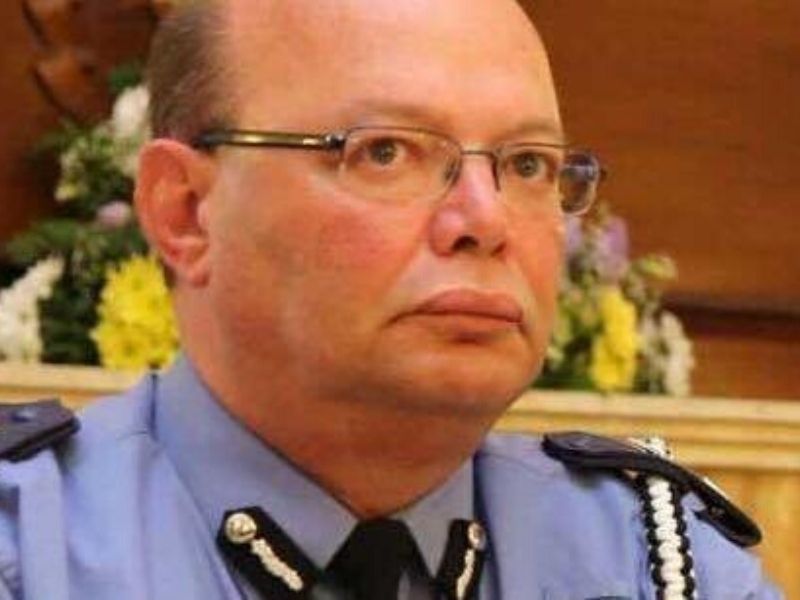Former Police Commissioner Lawrence Cutajar said risk assessments are not the remit of the police, and there is no official procedure in place for police to assess and initiate protection for journalists.
Testifying today at the public inquiry into the assassination of Daphne Caruana Galizia, Cutajar said he had no “note” of the journalist’s life being threatened, despite a very public hate campaign being directed against her.
The former commissioner insisted police cannot provide fixed point protection without the consent of the person being protected. “It has always been like this.”
“So you do not have a procedure which considers that a journalist is working on an investigation, for example, on corruption or kickbacks, and therefore needs protection?” asked Caruana Galizia family lawyer Therese Comodini Cachia, to which Cutajar replied “no”.
He recalled that during his tenure, between August 2016 and January 2020, he had provided protection to one journalist who had approached him with a request. He insisted he wasn’t aware that Caruana Galizia faced any risk, but said she had received protection four times since 2008, usually during election periods.
Risk assessments are the responsibility of the security service, he said and not the police.
Cutajar faced criticism throughout his tenure as police commissioner for his failure to take action on serious allegations raised in the Panama Papers.
Criticism turned to public ridicule when he was found about to enter a restaurant serving rabbit —while journalists filmed Pilatus Bank owner Ali Sadr leaving with bags suspected to contain crucial documents on the same night Caruana Galizia reported that the Panama Company Egrant belonged to Michelle Muscat, wife of disgraced former Prime Minister Joseph Muscat.
Despite the lack of visible results, Cutajar insisted police had taken action over FIAU reports on Keith Schembri, Konrad Mizzi, Brian Tonna and Adrian Hillman, and statements that said otherwise were just “perception”.
“We were acting,” he insisted. “Do you first charge a person and then collect evidence?”
Cutajar said the police sought the advice of Attorney General Peter Grech after receiving the first Financial Intelligence Analysis Unit (FIAU) report on 7 April 2016.
Grech advised them to proceed with caution on the unit’s suggestion to seize evidence from the servers of Nexia BT, the firm that opened Panama companies for Schembri and Mizzi.
Cutajar’s testimony matches that of former Economic Crimes Unit Chief Ian Abdilla, who also said the Attorney General instructed them to proceed with caution against Nexia BT. Grech has denied this.
When asked what they did instead, the former commissioner claimed letters rotatory had been sent to a number of foreign jurisdictions for information on the case, including Montenegro, Singapore, Dubai, China, Switzerland and the United Kingdom.
Judge Michael Mallia pointed out that, despite searching all over for information, “the evidence (they) had was right under (their) noses”.
“I think they were picked up,” Cutajar said, referring to the servers, “though it is now under the police working in the magisterial inquiry.”
“An inquiry does not absolve the police from investigating,” Judge Abigail Lofaro replied.
Cutajar insisted such reports did not go to him. They went directly to the fraud division headed by Ian Abdilla and Silvio Valletta.
The state of the investigation into the country’s largest corruption scandal wasn’t the only area where the former police commissioner pled ignorance.
Cutajar said he “did not know anything” about advice given to Muscat not to cut ties with murder suspect Yorgen Fenech.
Muscat had justified Fenech’s presence at his private birthday party in Girgenti by saying the security services had advised him to continue his relationship with Fenech so as not to raise suspicions.
The board also questioned Cutajar about a partisan Facebook post he had written prior to his tenure as commissioner where he had shown admiration for Muscat by praising the prime minister’s “brass balls” (“prim ministru bil-bajd”).
Cutajar admitted to writing the post but stressed it was something he posted on the spur of the moment. He said his interests were football, not politics.
Cutajar also confirmed to parte civile lawyer Jason Azzopardi that Yorgen Fenech had told police he had information on multiple corruption cases involving Keith Schembri, Macbridge, and 17 Black. The businessman was denied a pardon to reveal what he knows about the involvement of members of government in these cases.
He didn’t seem to have many answers when it came to the country’s biggest corruption cases, but the former police commissioner insisted on defending his record, citing unrelated improvements he made to the corps during his troubled tenure.
“I never protected anyone,” he said, rebutting public sentiment that the former commissioner was protecting government officials. “I’ve been out of the corps eight months now. Yet investigations are still ongoing, as they were before.”












